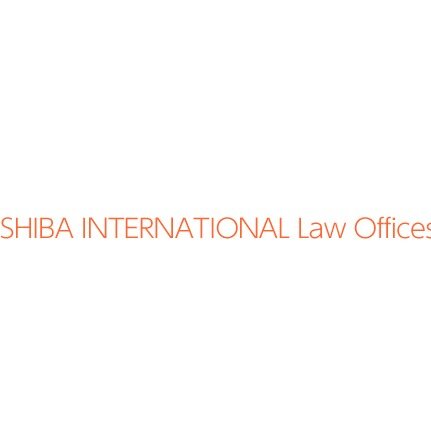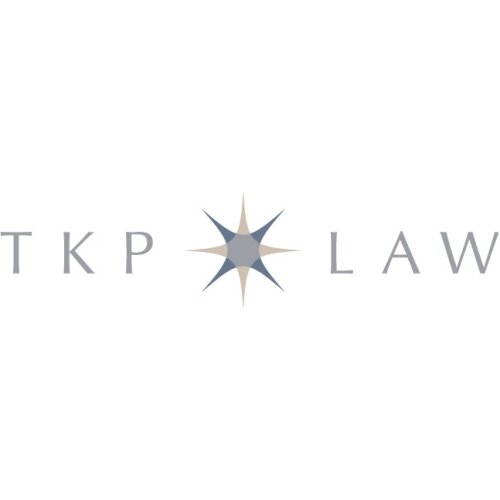Best New Business Formation Lawyers in Tokyo
Share your needs with us, get contacted by law firms.
Free. Takes 2 min.
List of the best lawyers in Tokyo, Japan
About New Business Formation Law in Tokyo, Japan
New business formation in Tokyo, Japan involves a comprehensive understanding of commercial, corporate, and tax laws. The process is influenced by both national laws and local regulations specific to Tokyo, which is one of the major business hubs in Asia. Business structures available in Japan include Kabushiki Kaisha (KK) and Godo Kaisha (GK), akin to corporations and limited liability companies. Forming a business in Tokyo requires compliance with registration processes, capital requirements, and adherence to local regulations. Navigating these laws is crucial for establishing a successful business in one of the world's most competitive markets.
Why You May Need a Lawyer
Engaging a lawyer during business formation in Tokyo can provide invaluable support in several situations:
- Understanding Legal Structures: Deciding between KK and GK, each with its unique legal implications and administrative requirements.
- Drafting and Reviewing Documents: Crafting contracts, bylaws, and other legal documents necessary for compliance and operational readiness.
- Compliance with Regulations: Navigating local zoning laws, permit requirements, and industry-specific regulations.
- Intellectual Property Protection: Ensuring trademarks and patents are secured, essential for tech and innovation-driven businesses.
- Tax Advisory: Understanding corporate tax obligations and incentives available to startups in Japan.
Local Laws Overview
Some key aspects of local laws affecting new business formation in Tokyo include:
- Commercial Registration: Mandatory registration with the Legal Affairs Bureau, a fundamental step in legal recognition of the business.
- Business Licenses: Certain industries require specific licenses and permissions, which must be obtained before commencing operations.
- Capital Requirements: While there is no minimum capital for GK, KKs are generally expected to have significant capital for credibility.
- Residency Requirements: Foreign entrepreneurs typically need a local representative or resident director as part of their business structure.
- Japanese Language Documentation: Most documents must be submitted in Japanese, necessitating translation services if not proficient in the language.
Frequently Asked Questions
What is the difference between a KK and a GK?
A KK (Kabushiki Kaisha) is a joint-stock corporation which offers limited liability to shareholders, while a GK (Godo Kaisha) is similar to an LLC, combining flexibility with limited liability. The KK structure is more prestigious and often required for larger businesses or when aiming to attract significant outside investment.
Do I need to reside in Japan to start a business in Tokyo?
Starting a business doesn't necessarily require you to reside in Japan; however, having a resident director or a local representative is necessary for administrative and legal processes.
What documents are required for business registration?
Key documents include Articles of Incorporation, affidavits confirming the authenticity of the company's activities, bank statements showing capital deposit, and identity proofs for all founding members.
How long does it take to establish a company in Tokyo?
The process can vary but usually takes six to eight weeks from preparation to registration completion, assuming all documents are in order and correctly filed.
What are the basic corporate tax rates in Japan?
The effective corporate tax rate is roughly between 30% to 35%, though various deductions and allowances may apply. It's advisable to consult a tax specialist.
Can foreign businesses enjoy any benefits?
Yes, Tokyo offers several incentives for foreign investors, including tax benefits, subsidies, and support for acquiring office space to boost foreign entrepreneurship.
Is a physical office required in Tokyo?
While not mandatory at initial stages, having a registered local office is beneficial for governmental registration and legitimacy in the eyes of clients and partners.
How do I protect my business idea?
Applying for patents and registering trademarks in Japan are essential steps to protect intellectual property. An intellectual property lawyer can assist in this process.
What accounting standards should I follow?
Japanese GAAP (Generally Accepted Accounting Principles) is mandatory, although some international standards, like IFRS, are also accepted for foreign firms.
Do I need a visa to establish a business?
Yes, non-residents intending to work at their businesses in Japan will need an appropriate visa, like a business manager visa. Consulting immigration lawyers can streamline this process.
Additional Resources
Understanding the complexities of business formation in Tokyo can be augmented through various resources:
- The Japan External Trade Organization (JETRO) offers comprehensive guides for foreign businesses.
- Tokyo One-Stop Business Establishment Center provides services for foreign entrepreneurs, including visa consultation and company registration support.
- Legal Affairs Bureau for official regulations and registration requirements.
- Local chambers of commerce can also provide networking opportunities and further assistance.
Next Steps
If you need further assistance with new business formation in Tokyo, consider the following steps:
- Consult a Lawyer: Reach out to legal professionals specializing in Japanese corporate law for personalized advice and representation.
- Engage a Tax Consultant: Understanding tax obligations and benefits can significantly impact your business decisions.
- Visit Relevant Government Offices: Engage with bodies such as JETRO for tailored guidance and support in your business venture.
- Attend Seminars and Workshops: Consider participating in local business seminars to grasp the latest trends and legal updates in Japanese business culture.
Taking informed steps during the formation process can build a solid foundation for your business, ensuring compliance and operational efficiency in Tokyo's dynamic market.
Lawzana helps you find the best lawyers and law firms in Tokyo through a curated and pre-screened list of qualified legal professionals. Our platform offers rankings and detailed profiles of attorneys and law firms, allowing you to compare based on practice areas, including New Business Formation, experience, and client feedback.
Each profile includes a description of the firm's areas of practice, client reviews, team members and partners, year of establishment, spoken languages, office locations, contact information, social media presence, and any published articles or resources. Most firms on our platform speak English and are experienced in both local and international legal matters.
Get a quote from top-rated law firms in Tokyo, Japan — quickly, securely, and without unnecessary hassle.
Disclaimer:
The information provided on this page is for general informational purposes only and does not constitute legal advice. While we strive to ensure the accuracy and relevance of the content, legal information may change over time, and interpretations of the law can vary. You should always consult with a qualified legal professional for advice specific to your situation.
We disclaim all liability for actions taken or not taken based on the content of this page. If you believe any information is incorrect or outdated, please contact us, and we will review and update it where appropriate.
















